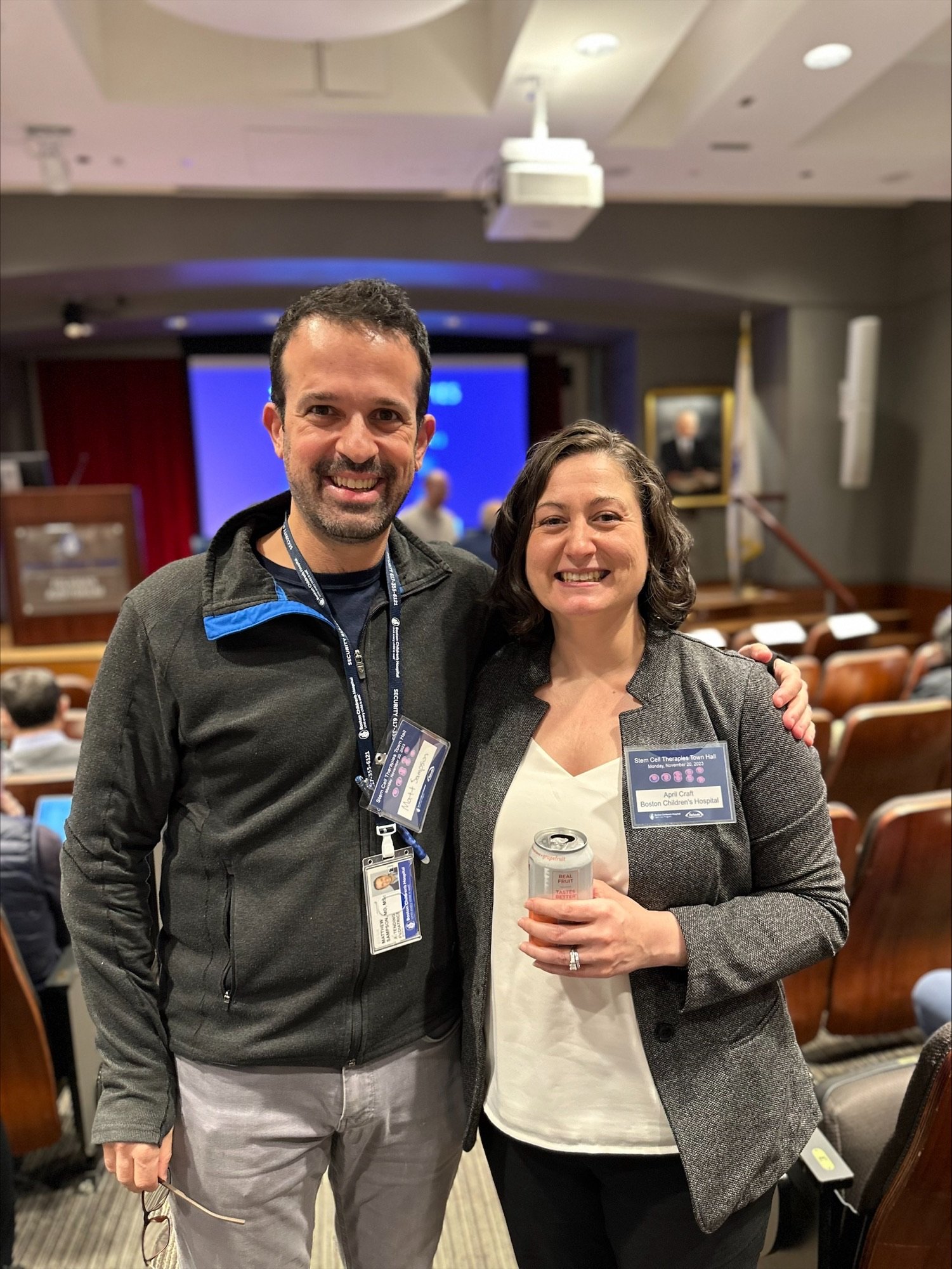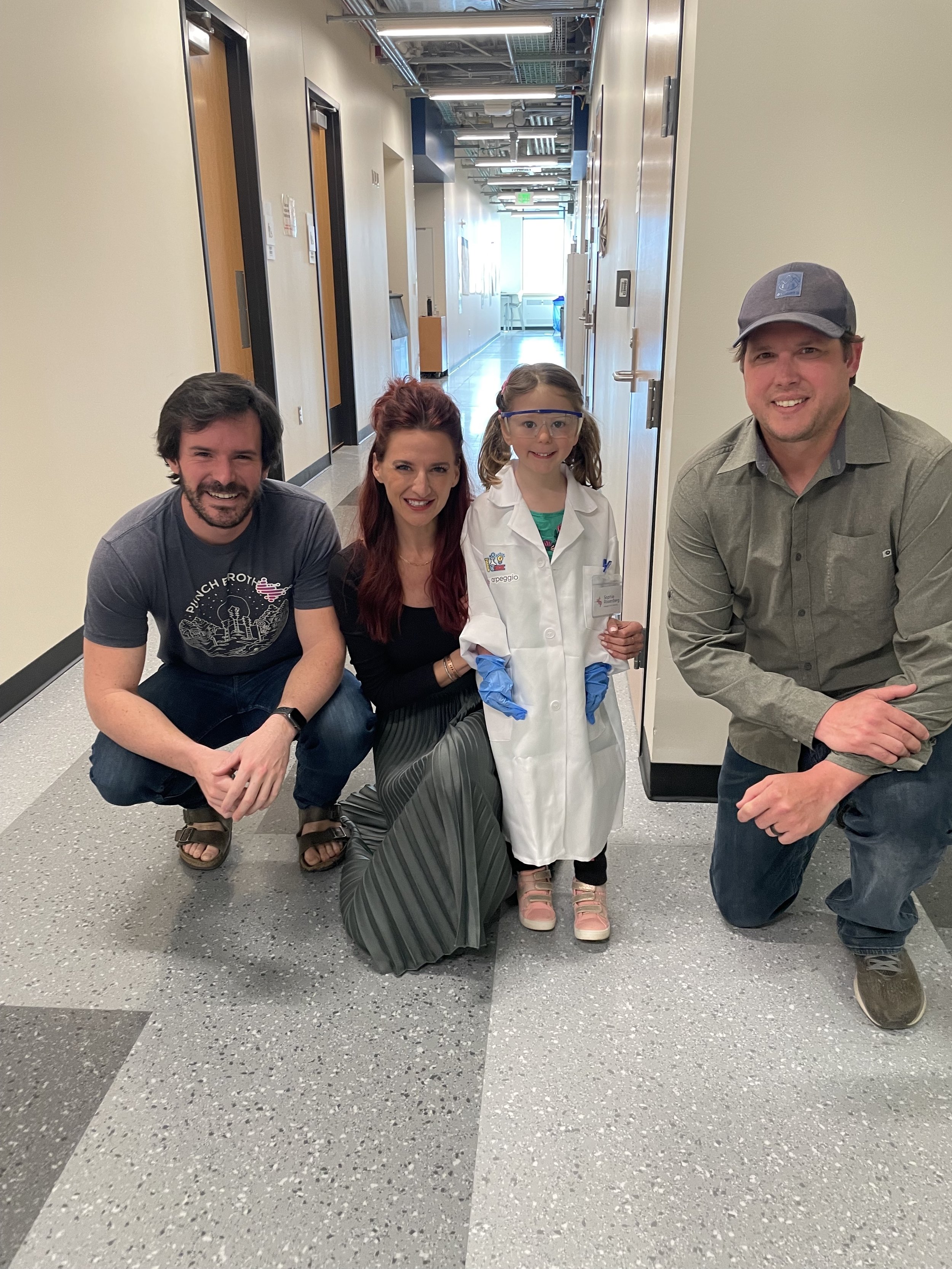We Are Proud of our Work!
Learn About Our Active Research In Need of Funding
Boston Childrens Hospital, April Craft, Ph.D.
“April Craft’s lab studies the development of cartilage and other synovial joint tissues, with hopes of applying this knowledge toward the development of therapeutics for disease attenuation and tissue regeneration and repair.”
April Craft’s lab is studying the normal role of MAFB in bone formation cells like cartilage and chondrocytes to understand what happens differently when the specific domain causing MCTO is mutated. The transition of cartilage to bone in this condition is currently unknown. This group is developing an iPSC-based model from MCTO-patient cells which harbor this stabilizing mutation in the MAFB gene and gene editing the MAFB-mutant iPSC line to correct this disease-causing mutation. Applying established differentiation protocols they will study the role of MAFB in cartilage at various developmental stages and test the hypothesis that MAFB mutant cells are defective or delayed in aspects of chondrogenic mesenchymel specification or growth, differentiation of articular cartilage, and terminal differentiation into hypertrophic growth plate chondrocytes. Within a two year grant term, April’s lab will elucidate the role of MAFB in chondrogenesis, in human cells, and in the presence of a genetic mutation that causes MAFBs function to become pathogenic in patients.
April Craft along with Sophie’s Neighborhood scientific advisor, pediatric nephrologist, Matthew Sampson MD MS.
Christina Jacobsen, MD, Ph.D.
“Dr. Christina Jacobsen is a pediatric endocrinologist and geneticist with a particular interest in genetic bone diseases including osteogenesis imperfecta and skeletal dysplasia as well metabolic bone disease.”
Christina Jacobsen’s research for MCTO compliments that of April Craft’s, however, this study focuses on bone tissues that are further along in development, such as osteoblasts. Her work will shed light on dysfunction in the bone building process occurring in MCTO.
Harvard School of Dental Medicine, Roland Baron DDS, PhD
“Dr. Baron is internationally known for his groundbreaking advances in bone biology. His research is the basis for the development of novel therapies to prevent bone loss such as that in arthritis and osteoporosis.”
Roland Baron’s lab is studying bone remodeling activity and cellular changes in MCTO mice. Along with Dr Fracesca Gori, Roland Baron’s lab is analyzing a complete histology and histomorphometry of bone to understand the cause of the local loss of bone in MCTO. His work will fill gaps observing MCTO mice at earlier ages to capture the changes that lead to ‘osteolysis’ in MCTO patients. It has already been observed by Dr Baron and Dr Satoru Takahashi that at the age of 12 weeks in MCTO mice, there is significant bone loss, and almost no trabecular bone is left. His studies will label and measure stages prior to this occurrence to make mechanistic conclusions about bone loss in the condition.
Roland Baron speaking at the 2023 GoldLab Symposium.
Please support our ongoing work by making a contribution today. Find out more about our giving programs here.
University of Tsukuba, Satoru Takahashi, Ph.D, Professor, Director, Chairman
“Satoru Takahashi specializes in Molecular Biology and Developmental Engineering. He conducts research on the molecular mechanisms of organ formation cell differentiation by the Large Maf Transcription Factor family. In particular, he focuses on research into the formation of pancreatic endocrine cells; formation of renal podocytes; and regulation of macrophage functions.”
Saturo Takahashi and his lab at University of Tsukuba are instrumental to MafB research and is key to the starting point of Sophie’s Neighborhood funded research for MCTO. His lab developed the first ever MCTO mouse model, from which we have been learning, through preliminary histology, preliminary drug validation, the role bone marrow likely plays in the condition, and more.
Arpeggio Biosciences
“Arpeggio is made up of a team of computer scientists, biologists, and entrepreneurs using functional genomics to find new therapeutic targets...”
Arpeggio is currently running the first MCTO drug screen on our validated model system. They previously identified an MCTO gene signature, being used to decipher if drugs in the particular library being examined, (and others in the future) can alter those genes to behave more alike normal / wild type controls. This group has been instrumental in investigating the role of MafB to illuminate novel therapeutic approaches in the context of MCTO.
University of Colorado, Children’s Hospital Colorado, Nina Ma MD
Nina Ma is the Ed and Jeannette Kerr Family Endowed Chair in Pediatric Endocrinology and the Director of the Bone and Mineral Metabolism Clinic at Children’s Hospital Colorado.
Dr. Ma is the PI and Pediatric Endocrinologist leading the first ever Natural History study for MCTO. Natural history studies collect information from patients to better understand diseases, especially rare conditions. In addition to her stellar work as a clinician in Endocrinology and her research, Nina is making an impact on this rare condition, using a de-identifed system of coordinating medical chart data from MCTO patients, published literature - retrospectively, and ultimately prospectively; to better understand the clinical aspects of MCTO. This is an essential element in the drug discovery process to ultimately prove efficacy of prospective therapeutics.
Nina Ma has published an MCTO case report, and Contemporary Perspective on the Unique Skeletal Phenotype of MCTO.
Dr. Ma is an exceptional physician with interests in understanding and treating children with rare bone conditions. (And, she is Sophie’s favorite doctor!)







